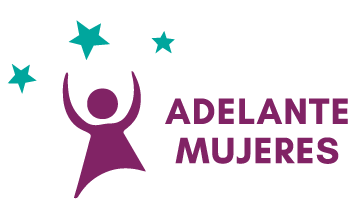Meet Jocelyn, a first year Chicas participant, as we take a peak at this week's Chicas topic: Nutrition!
The bell rang to signal the end of another school day and the hallways filled with backpacked kids quickly making their way out of the building. But for a group of young Latina girls, this bell signals the start of something exciting -- their weekly Chicas session.
The girls anxiously run to their seats while Araceli, their Chicas Youth Facilitator, takes attendance. Araceli has been working in the Chicas Program for the past five months. “They are so willing to learn new things, experience new places, and share their culture,” says Araceli.
Araceli Mendez, A Chicas Facilitator, begins the session.
The Chicas Youth Development Program has been a part of Adelante Mujeres since 2008, beginning at three school sites. The program has now grown to twenty school sites, serving over five hundred girls.
Today, the Adelante staff has whipped up a tasty session: Nutrition. Araceli is joined by Mayra and Kaely, who run Adelante’s Nourish the Community Program. Mayra starts the session off by passing a stuffed carrot around the room having each girl share their name and their favorite fruit or vegetable.
Mayra Hernandez (left), Sustainable Agriculture & Nutrition Coordinator, and Kaely Summers (right), Forest Grove Farmers Market Manager, begin their nutirion session with the Chicas.
Kaely explains, “The Nourish the Community Initiative through Adelante Mujeres started in 2012 as a response to growing diet-related health concerns, the diabetes and obesity epidemic that we were not only hearing about on the national news, but also observing with families in our Adelante community.”
Because Latinos are disproportionately impacted by this problem, and our staff consistently heard parents saying, “my child won’t eat veggies,” Nourish the Community merged with Chicas to provide fun, interactive nutrition classes.
“When Mayra and I come into the Early Childhood Education classrooms with a potted beet and show the children how beets grow, they get to touch the leaves, put their hands in the dirt, and paint with beet juice. Then they are more willing to also taste the beets and beet greens and they like them,” Kaely says.
Mayra holds up a bunch of fresh kale while talking to the girls about its nutritional benefits. When reflecting on her own experience growing up, she says, "I think the support of Chicas would have provided me with the opportunity to know how to care for myself and live a healthy, safe and secure life as a strong Latina woman."
The girls break off into smaller groups and rotate different activities like fruit and vegetable bingo and making their own smoothies using kale, apples, bananas, and almond milk. The classroom is filled with energy and laughter as the girls chop up their fresh produce. Excited to try their own concoctions, the girls decide to cheers first. They each sip their smoothies and, with some surprise, exclaim “It’s good!”.
The Chicas Program provides holistic support to low-income Latina girls. In addition to nutrition, Chicas facilitators cover a vast array of topics to ensure the girls gain knowledge and confidence in every aspect of their lives. So far this school year, Araceli and the girls have covered topics such as cultural and self-identity, cultural and personal values, communication in healthy relationships, conflict resolution, and goal-setting.
Jocelyn, a bright-eyed fifth grader with a vibrant smile glued to her face says this is the first year Chicas was offered in her school, and so far she loves it. She says that she has struggled with making friends in school, but all that has changed since starting Chicas.
Jocelyn, a fifth grader, is a first-year Chicas particicpant.
Araceli explains that in the beginning Jocelyn sometimes lacked self-awareness about the effect her actions might have on others. But as time passed, she became more compassionate and considerate of how others might feel. Jocelyn says the most important thing she has learned through Chicas so far is that friends have to be respectful and fair. Now, she says she has lots of great friends that she met through Chicas.
At the end of the session, Araceli rounds up the girls and guides them out of the classroom. “I would’ve loved to have had a group of girls my age I could talk to about being Latina and know that they understood me", says Araceli. "I never truly appreciated my cultural background until I left for college. With a program like Chicas, I think I would’ve been more proud of my story and embraced the struggles it took for me to get to college”.
Araceli continued, “Chicas is a vital part of the community because the girls meet other Latinas with similar backgrounds and obstacles, and they bond with mentors that look like them and speak like they do. I can’t think of a more powerful way to give these girls a voice and teach them solidarity at the same time.”
As the last school buses pull up to shuttle the Chicas home, Jocelyn and her group of friends rush up and ask, “Can you take one more picture of us?” and they all pile in around Jocelyn for one giant hug. A lack of friends seems to be a thing of the past for these Chicas.



















